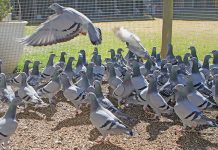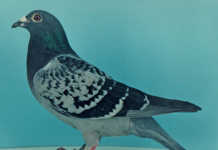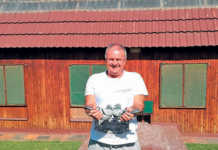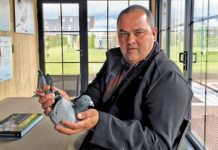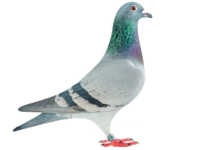Breeding season runs simultaneously with the racing season. Fanciers in colder areas may need to wait for the extreme cold to pass before starting breeding, and can get their racers in shape first.
Near the end of January our South African racing pigeons go into a natural moult, a very important stage when they shed old feathering to grow new plumage before winter. The moulting takes its own strains, according to how fast birds shed and grow new feathering. At this stage proper feeding and nutritional supplementation is a must. Natural probiotics, especially mixed with a combination of oil-based goodies, can only help our pigeons through a perfect moult.
Some fanciers also claim medication during the moult is harmful to natural feather growth. Although there appears to be wisdom in this, few fanciers who have medicated cautiously, during the off-season have reported negative effects when the racing season started. Over the years we’ve received contrary advice about routine treatment in the off-season. Some are entirely against it, while others strongly advises it, but with caution. Who should we follow?
Medication and natural immunity
In South Africa we can pick most pigeon medication off the shelves, but in countries like Belgium you must first consult a veterinarian for a prescription. The indiscriminate use of medication is the prime cause of bacteria resistance, the universal set-back in controlling pigeon diseases. This is why when racing pigeons fall ill they often aren’t responsive to treatment and we have mixed success in keeping them healthy.
Viral diseases have multiplied and are chronically suspected in newly weaned pigeons. Often an entire young bird team dies out with either one or a mixture of viral infections. One viral infection opens the door for others, as natural immunity is destroyed while the pigeons are ill. Strictly speaking there’s no cure for viral infections except for 100% hygienic pigeon keeping and using immunity boosters.
The primary reason for advising against off-season treatment is the pigeons need to rest and regain the full health of their natural flora, which is broken down either by the stresses of competition and or of raising young prior to the off-season.
Strictly speaking medication should only be administered when birds fall ill. There are fanciers the world over who’ll only use it as a last resort. Others claim to never medicate and dispose of birds which can’t recover naturally, selecting for “superior” specimens with higher disease resistance. They consider birds “rescued” with medicine to be weaklings. There may be some truth in the theory, but these fanciers still don’t dominate the results against those who medicate wisely.
Carriers of disease
Our pigeons can’t be 100% healthy all the time, and not all the birds in a flock are equally healthy. Pigeons may have mild forms of almost anything but if stress levels are low it doesn’t develop into anything serious. But when there are a few worm eggs too many, or a little more crop canker or throat mucous than usual, expect trouble.
It doesn’t sound very noble to shove a bitter tablet down our pigeon’s throat, but we may not always know we have a sick pigeon unless we visit the vet for routine examination. Certain pigeons are carriers of disease, which don’t fall ill or show visible signs of disease but can infect the entire flock – which can be a costly affair.
Wise routine treatment at lower dosages, supplemented with immunity activators, isn’t a bad idea. Natural immune supplements are more readily available than ever before and must be used either during or after administering medication.
The seasonal vaccination against pigeon pox and the paramyxo virus is a must and required by South African law, but it isn’t properly controlled by pigeon organisations and many birds go untreated. Some fanciers openly refuse to treat for paramyxo, but routine treatment for most known pigeon diseases your birds may encounter, especially when in contact with other birds, is highly recommended.
.


